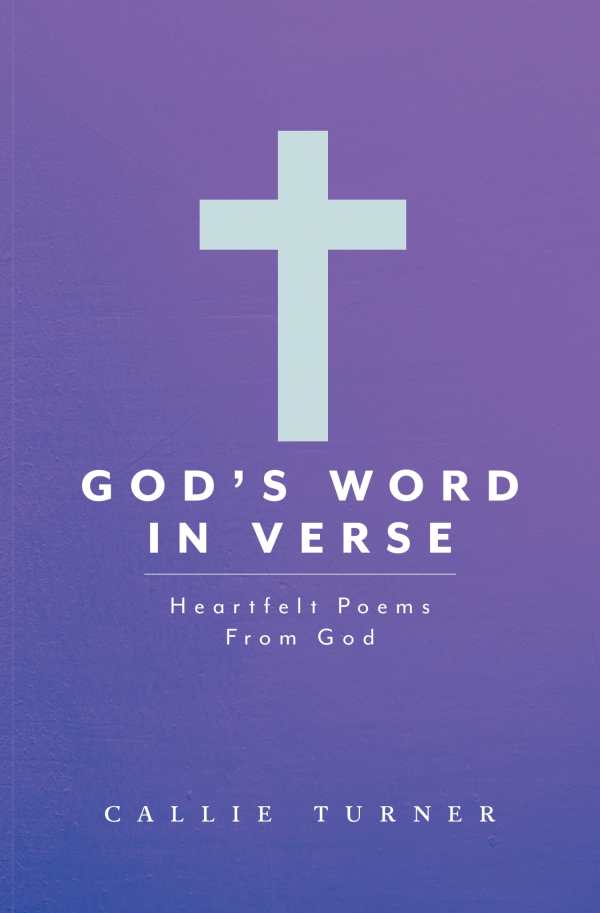
God's Word in Verse
Heartfelt Poems from God
Dealing with universal themes of Christian devotion, including doubt, praise, and forgiveness, God’s Word in Verse is an affecting poetry collection.
Callie Turner’s slim poetry collection God’s Word in Verse borrows the imagery of the psalms to form accessible devotional lines.
These twenty-one poems explore the struggles, ambiguities, and triumphs of lives of Christian prayer. Some make use of King James English, complete with Thees and Thous:
Eternal God, my Savior, My Lord, My King,
I pray Thee bring about this one thing:
Let sin not live in me.
Sin so great I cannot flee.
Others utilize the plain language of spontaneous speech. Most of their tropes and images are pulled from the Bible, and they take a depersonalized posture that mirrors their source material: Individual circumstances, histories, and personalities are minimized so that the focus remains on human relationships with God. While most of the poems deal with universal themes from Christian devotion, including doubt, praise, and forgiveness, a lengthy elegy for those who died because of of COVID-19 deviates from this track.
Composed in rhyming couplets, the entries have uneven rhythms. Each line contains a different number of syllables, leading to awkward, imbalanced pairings. When the book experiments with forms, as with the repeating refrains in “Tell Jesus” and the call-and-response structure of “Our Fortress,” these rhythms are more effectual.
Narrative poems also stand out among the rest, as with “Jesus Passed By … I Think … “ about neglecting the needs of strangers—and, by proxy, Jesus:
A child I saw so fragile, so small, on death’s brink.
Before my eyes in dirt and grime sat an orphaned child,
Looking up at me so tired, so weak, so mild.
Sad and lonely eyes pleaded with me.
But I rushed right on by, you see.
The entry’s fresh, concrete imagery helps to elucidate its themes. This same attention to concentrated narration is apparent in “The Burning Bush,” which follows a lengthy retelling of the biblical story of Moses’s encounter with the burning bush with a sudden, personal interjection: “Oh, Father God of all that be, / May that fire also for me burn deeply within.” Still, the book’s imagery on the whole is abstract and distant. Further, the book’s overreliance on scriptural references is an impediment to immersion, making much of its work feel too familiar to be impactful.
The Christian devotional poems collected in God’s Word in Verse center prayer, worship, and people’s personal relationships with God.
Reviewed by
Isaac Randel
Disclosure: This article is not an endorsement, but a review. The publisher of this book provided free copies of the book and paid a small fee to have their book reviewed by a professional reviewer. Foreword Reviews and Clarion Reviews make no guarantee that the publisher will receive a positive review. Foreword Magazine, Inc. is disclosing this in accordance with the Federal Trade Commission’s 16 CFR, Part 255.
